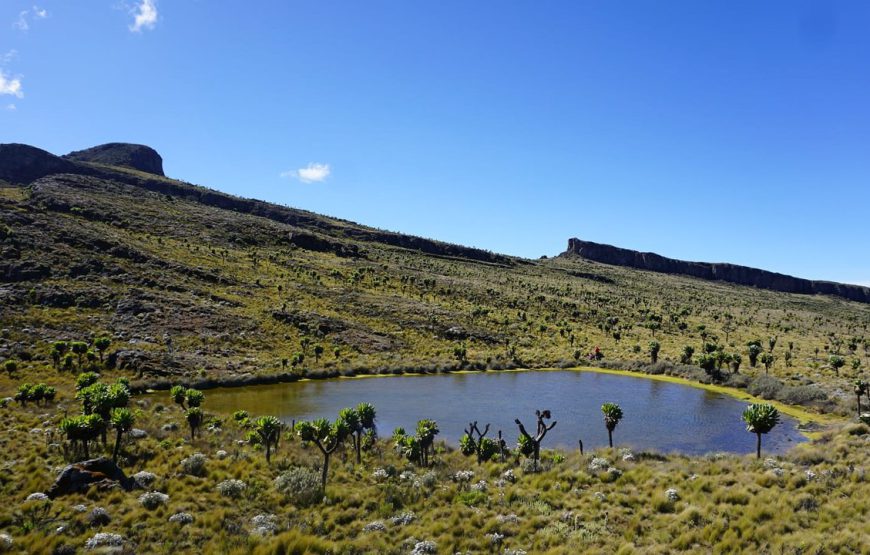from 0 review
2–3 days.
Daily Tour
Unlimited
___

Mount Elgon is an extinct volcano and one of Uganda’s oldest geological formations, with its first eruption occurring around 24 million years ago. At one point in history, it was Africa’s tallest mountain, standing even higher than Kilimanjaro’s 5,895m. However, millions of years of erosion have gradually reduced its height to 4,321m, ranking it as the 4th highest peak in East Africa and the 8th highest on the continent.
Mount Elgon is home to the Bagisu and Sabiny tribes, while the Ndorobo community has historically lived in the forests of Benet. To the Bagisu (BaMasaba), the mountain represents their ancestral father, Masaba, and they continue to honor this heritage by referring to the mountain by his name.
The Bagisu circumcision ritual (Imbalu), one of the region’s most significant cultural traditions, is directly tied to the mountain. This public initiation ceremony, held every even-numbered year, marks a young man’s transition into adulthood and attracts visitors from across the country.
With a 4,000 km² base—the largest of any volcano on Earth—Mount Elgon stands as the oldest and largest solitary volcanic mountain in East Africa. The mountain has a diameter of 80km, and its cool, high-altitude climate creates a dramatic contrast to the surrounding hot, dry plains.
The landscape is shaped by deep valleys, waterfalls, caves, and lush forests, leading to open moorlands and Afro-alpine vegetation at higher elevations. This unique ecological mix provides habitat for diverse wildlife and plant species.
Mount Elgon National Park supports over 300 bird species, including the endangered Lammergeyer (bearded vulture), Tacazze sunbird, and Jackson’s francolin. The park’s forests and moorlands are also home to various mammals, including:
The diverse vegetation zones range from montane forests to Afro-alpine moorlands, featuring giant lobelias and groundsels, which thrive at high altitudes.